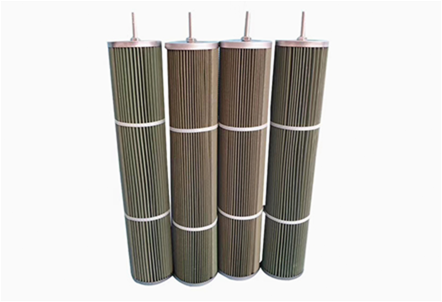 Tel:
+8618931101301
Tel:
+8618931101301
Aug . 15, 2024 14:47 Back to list
Strategies for Choosing and Maintaining Turbine Air Intake Filters for Optimal Performance
Understanding Turbine Air Intake Filters Importance and Functionality
Turbine air intake filters are crucial components in the operation of gas turbine engines, which are widely used in aerospace, power generation, and industrial sectors. As these engines rely on a continuous flow of air to function efficiently, the quality of that air is paramount. The primary function of air intake filters is to ensure that only clean, unobstructed air enters the turbine, enhancing performance and longevity.
The Need for Air Intake Filters
Gas turbines operate by harnessing energy from either combustion or gas flowing through an exhaust system. In both cases, the quality of the air that enters the turbine significantly impacts the engine's efficiency and operational lifespan. Contaminants such as dust, dirt, and pollen can lead to premature wear, corrosion, and ultimately, engine failure. The presence of such particulates can hinder airflow, reduce combustion efficiency, and increase fuel consumption. Thus, incorporating robust air intake filters is essential in preventing these issues and optimizing the turbine's performance.
Types of Turbine Air Intake Filters
There are several types of air intake filters used in gas turbines, each designed to address different operational needs
. The most common include1. Panel Filters These are flat filters made from various materials, like fiberglass or synthetic fibers. They are often used in stationary applications and can be easily replaced.
2. Bag Filters Similar to panel filters but with a higher surface area for better filtration capabilities. Bag filters are designed to capture smaller particles and are often used in environments with high levels of airborne contaminants.
turbine air intake filters

3. Pre-Filters These filters provide an initial layer of protection. They are designed to capture larger particles before they reach the main filter, prolonging its life and maintaining efficiency.
4. High-Efficiency Particulate Air (HEPA) Filters While primarily used in sensitive applications, HEPA filters can be employed in turbine systems where maximum air purity is required. These filters can trap very fine particles and are essential in environments that demand high air quality.
The Filtration Process
The filtration process begins when air enters the intake system. As it passes through the air filters, various contaminants are trapped by the filter media. The efficiency of this process depends on multiple factors, including the filter material, design, and the speed of air movement. Effective filtration minimizes the risk of particulate matter reaching the turbine blades, which can lead to issues such as erosion and fouling.
Maintenance and Monitoring
Regular maintenance of turbine air intake filters is vital. Over time, filters can become clogged with particulates, reducing airflow and efficiency. This necessitates periodic inspection and replacement to ensure optimal function. Advanced monitoring systems can track pressure drops and airflow rates, providing operators with real-time insights into filter performance and indicating when maintenance is required.
Conclusion
In conclusion, turbine air intake filters play a pivotal role in ensuring the effective operation of gas turbine engines. By preventing contaminants from entering the system, these filters not only enhance performance but also extend the engine's service life. As the demand for reliable and efficient turbine operation continues to grow, the importance of high-quality air intake filtration cannot be overstated. Effective filtration strategies, combined with regular maintenance, will guarantee that turbines operate at peak performance, resulting in economic savings and improved reliability in various applications.
-
Working principle of high-efficiency dust filter elementNewsJun.26,2025
-
The truth about washable filters: Does repeated use really not affect efficiency?NewsJun.25,2025
-
Effect of humidity on the performance of activated carbon filter elementsNewsJun.24,2025
-
Material selection considerations for dust removal filter elements under high temperature conditionsNewsJun.23,2025
-
Cold knowledge of air filters: Why are some designed to be pleated?NewsJun.16,2025
-
Factory direct supply! High-precision air filter element wholesale and customizationNewsJun.12,2025

 Email:
Email:





